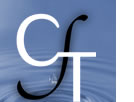 |
||||||||||
The Teaching Exchange: Innovations by TAs
This article was originally published in the Spring 1999 issue of the CFT's newsletter, Teaching Forum.
TAs have effectively expanded the borders of their classrooms through various creative strategies.
"Every Monday, Wednesday, and Friday afternoon, I endure the stares and snickers of strangers who do not fully appreciate the beauty of the 'Bucket of Math.' Inspired by Dr. Mark Teaford of the Johns Hopkins University, the Bucket of Math travels with me to every class I teach. Its purpose is to elicit questions, comments, complaints, or compliments from my students. At the beginning of each class, I place the Bucket near the door to the classroom, and at the end of class, students who have anything to say about the day's lecture can drop anonymous notes into the Bucket. I respond to these queries in the next lecture. Although I encourage my students to ask questions during class, I realize that fear of looking ignorant in front of peers can prevent them from doing so, and the Bucket enables them to ask questions without fear of mockery. I also ask my students to give me feedback about my teaching in the Bucket so that I can try to constantly mold my teaching to their needs. My students also make the Bucket fun by dropping silly notes, paper airplanes, or origami structures on days when I am needing a lift. I believe that the presence of the Bucket lets my students know that I am always open to suggestions and makes them more comfortable about asking questions that might otherwise remain unasked."
-- Amy H. Lin , TA, Department of Mathematics
"Can a website help your students? If you were to visit my homepage, you may think it is too simple, not so informative. But my organic chemistry students told me they like it and it helps them a lot.
"Initially, I just wanted to have a bulletin board to further explain some concepts, give hints for hard exam questions, and inform students of procedural changes in the lab. It was obvious to me that a webpage would help me to do that. I am not a webpage expert; I just know some HTML tags. I started the page with no confidence, but I received positive responses from my students. They encouraged me to do it. I really appreciate my students' enthusiasm about my page.
"I think with this page I not only reached my initial goal, but also improved my relationship with my students. My overall student evaluations improved tremendously. It's an amazing change. Of course the Center for Teaching and Darlene Panvini's help is part of it, but the web page counts a lot, too.
"There is an old Chinese saying: "Don't try to do a bad thing, even if it is small; don't refuse to do a good thing, even if it is tiny." A small good thing can change a lot; why not try it?"
-- Yanlin Zhang , TA, Department of Engineering.
Editor's note: Web page space is available for most Vanderbilt TAs and faculty on Vanderbilt's web servers; contact the Center for Teaching for more information.
"Each semester, on the first day of class, I hand out an appointment sheet so that my students can schedule a ten minute meeting with me in my office. These little meetings serve several purposes. First, they let the students know where my office is and let them realize that coming to my office is an easy, and hopefully not-too-scary experience. Secondly, they really help me to learn their names quickly. Last semester, after having these meetings, I could remember about 23 out of 27 names by the next class (with a few cheat notes that I take during the meetings). This is much better than I usually do. I think that in a larger class I might not learn all of the names within the first week or two, but the more names I can learn, the better.
"Learning the student's names may not seem like a really important thing, but for some students, it is. I think that for many students, a personal relationship with their instructor really helps with their level of commitment to the course and their willingness to approach me when they are having problems. Of course, not all of the students will want to have this sort of relationship with their instructor, but by having these meetings I give them the opportunity to do so. There are other ways to get to know one's students, but I think that in the surprisingly short fifteen weeks of a semester, one needs to try to get to know the students as quickly as possible. The conferences really help me to speed up the process.
"The last reason I have one-on-one meetings with my students is to ask them about themselves. I can find out about their background in mathematics, whether or not they have any special needs (longer test time, etc. . . ), and their motivation for taking the course.
"I have been surprised at what a difference three or four hours worth of meetings can make. If you have a bigger class, then you might want to try shorter meetings. I recommend that you give it a try."
-- Ian Stobert, TA, Department of Mathematics
HOME | ABOUT CFT | PROGRAMS | SERVICES | RESOURCES
Center for Teaching |
General Questions? Web Site Questions? Copyright ©2009 |
